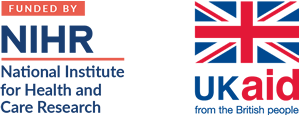Learn More
CEBRAP conducted an interview between Vera and Frederico which was a very creative way of promoting COMPLUS. Portuguese Video, please use subtitles as appropriate
Universal Health System
There are many typologies for a Universal health system, which are often confounding and conflating, namely Universal Health Coverage (UHC), Universal Health care, Universal Access to health care and each of them stem from different political economy epistemologies. A UHS conceived by us is a system which offers comprehensive services based on everyone’s needs by virtue of being human (social justice) without any means-testing thereby catering to the most vulnerable, and irrespective of their ability to pay and will embody equity. UHS provides for greater solidarity, risk pooling and cross subsidisation and promotes social justice in which the rich are made to make progressive higher contributions (burdens are shared by the rich) to the system. Most importantly for the vulnerable, such a UHS provides ‘universalisation of social protection in health’.
Community Participation Rooted in the Human Rights Framework
Our approach to health, health care and participation is based on a human rights framework. In General Comment (GC) 14 of the International Covenant on Economic, Social, Cultural Rights (ICESCR), an interpretation of the right to health, participation features as a central component to achieving the right to health. Notably, GC14 argues that participation in health systems should entail decision-making and should occur at local (community), national and international levels. All countries involved in the current proposal have ratified the ICESCR and are therefore state parties, recognising the right to the highest attainable standard of health and the General Comments elaboration. Hence, within this framework, participation becomes an obligation of the state, which must put in place mechanisms for meaningful participation.
Private Sector Engagement
With some exceptions, health systems in LMICs are characterised by weak public health systems and dominant private health providers. The potential benefits cited for involving the private sector are effectiveness, performance-orientation, promotion of a customer-centric approach and innovative financing. In the private sector, inputs are linked to outcomes and hence, believed to encourage a performance-driven environment. Countries around the world are trying out various mechanisms to insource/ empanel/enlist private providers for care provision through generally a national health insurance model (or a publicly financed health insurance) as a path towards Universal Health ‘Coverage’ because of under resourced public health systems. But these remain at a purely contractual arrangement level and participation of the communities are limited.
CEBRAP conducted an interview between Vera and Frederico which was a very creative way of promoting COMPLUS. Portuguese Video, please use subtitles as appropriate
Universal Health System
There are many typologies for a Universal health system, which are often confounding and conflating, namely Universal Health Coverage (UHC), Universal Health care, Universal Access to health care and each of them stem from different political economy epistemologies. A UHS conceived by us is a system which offers comprehensive services based on everyone’s needs by virtue of being human (social justice) without any means-testing thereby catering to the most vulnerable, and irrespective of their ability to pay and will embody equity. UHS provides for greater solidarity, risk pooling and cross subsidisation and promotes social justice in which the rich are made to make progressive higher contributions (burdens are shared by the rich) to the system. Most importantly for the vulnerable, such a UHS provides ‘universalisation of social protection in health’.
Community Participation Rooted in the Human Rights Framework
Our approach to health, health care and participation is based on a human rights framework. In General Comment (GC) 14 of the International Covenant on Economic, Social, Cultural Rights (ICESCR), an interpretation of the right to health, participation features as a central component to achieving the right to health. Notably, GC14 argues that participation in health systems should entail decision-making and should occur at local (community), national and international levels. All countries involved in the current proposal have ratified the ICESCR and are therefore state parties, recognising the right to the highest attainable standard of health and the General Comments elaboration. Hence, within this framework, participation becomes an obligation of the state, which must put in place mechanisms for meaningful participation.
Private Sector Engagement
With some exceptions, health systems in LMICs are characterised by weak public health systems and dominant private health providers. The potential benefits cited for involving the private sector are effectiveness, performance-orientation, promotion of a customer-centric approach and innovative financing. In the private sector, inputs are linked to outcomes and hence, believed to encourage a performance-driven environment. Countries around the world are trying out various mechanisms to insource/ empanel/enlist private providers for care provision through generally a national health insurance model (or a publicly financed health insurance) as a path towards Universal Health ‘Coverage’ because of under resourced public health systems. But these remain at a purely contractual arrangement level and participation of the communities are limited.


